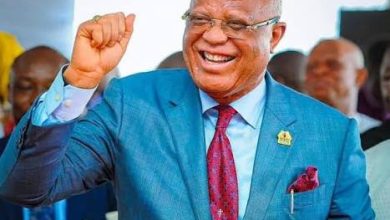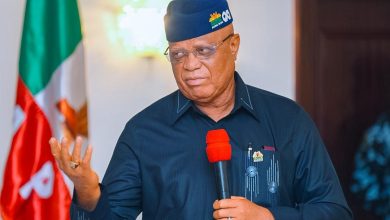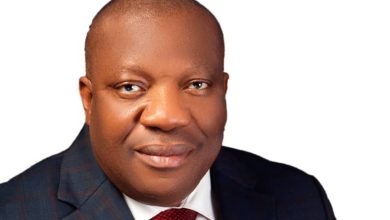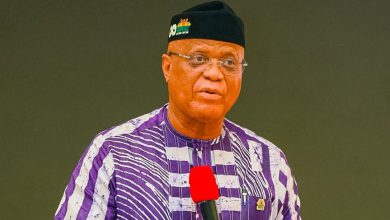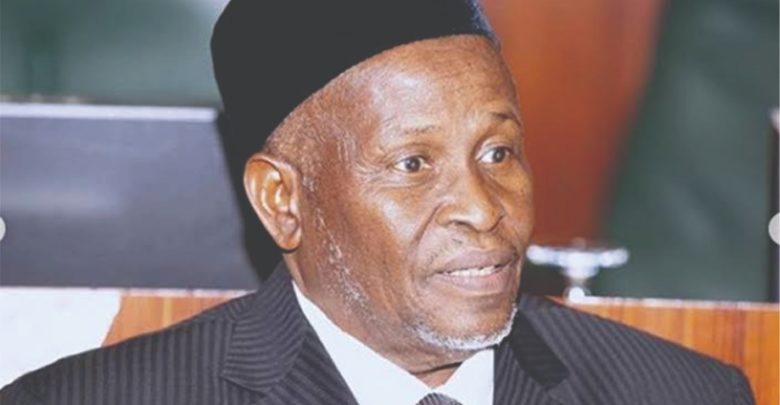
Imolites and indeed Nigerians were thrown into shock when a seven-man panel of the Supreme Court nullified the election of Hon. Emeka Ihedioha as the Governor of Imo State and unanimously declared Hope Uzodinma as the duly elected governor of the state.
In an unprecedented judgment that lasted for eight hours, the seven-man panel led by the Chief Justice of Nigeria, Justice Tanko Muhammad, unanimously held that Hope Uzodinma of the All Progressives Congress was the winner of the March 9, 2019 governorship election and the validly elected governor of the state.
Justice Kudirat Kekere-Ekun, who read the lead judgment, ordered that the certificate of return issued to Ihedioha be immediately withdrawn and directed that a fresh certificate of return should be issued to Uzodinma who she ordered should be sworn in immediately as governor.
In upholding Uzodinma’s appeal on Tuesday January 14, the Supreme Court agreed with the former senator that the votes polled in 388 out of the 3,523 polling units were excluded in the final results declared by the Independent National Electoral Commission in the states, on March 11, 2019.
Justice Kekere-Ekun ruled that with the addition of the excluded votes to the earlier declared final results, Uzodinma polled the highest lawful votes with the required spread of votes in the state.
She set aside the judgments of both the Imo State Governorship Election Petitions Tribunal and the Court of Appeal which had both affirmed Ihedioha’s election.
She stated that “The lower court misunderstood the case of the appellants,” adding that “the case was not a case of exclusion from the election but exclusion of votes from final results.”
She faulted the lower courts for rejecting results of the 388 polling units on the grounds that they were not tendered before the tribunal by the proper person.
In his arguments, Emeka Ihedioha reminded the Supreme court of its earlier ruling on December 20, 2019 where it declared that Uche Nwosu was the candidate of both the APC and the Action Alliance and on the basis of that declared the nomination of Nwosu for the March 2019 election as null and void
.
On the strength of this, his lawyers argued that the apex court’s judgment implied that Uzodinma was not the APC’s candidate in the election.
But Justice Kekere- Ekun held that the issue of nomination was a pre – election issue that could not be raised in a post-election litigation.
As the consequence of the findings, she ordered, “The judgment of the lower court which declared the first appellant as the winner with the majority of lawful votes is hereby set aside.”
“It is hereby declared that votes due to the appellants – Hope Uzodinma and the All Progressives Congress – were wrongfully excluded. It is ordered that the votes unlawfully excluded should be added. The first respondent (Ihedioha) was not duly elected by the majority of lawful votes and his return as the winner of the election is hereby declared null and void.
“The first appellant (Uzodinma) polled the majority of the Imo State governorship election held on March 9, 2019 and got the required spread across the state. “The first appellant is the winner of the governorship election held on March 9, 2019 in Imo State.”
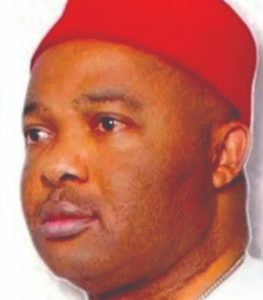
The ruling, needless to say generated diverse reactions from various quarters with many left wondering how Uzodinma who came a distant in the March 9 governorship election became the governor ahead of Ifeanyi Araraume of the All Progressives Grand Alliance (APGA) and Okorocha’s son in-law, Uche Nwosu of Action Congress.
It is one judgment, many contend, has put the judiciary on the spotlight once again with observers opining that the ruling may have been influenced from some quarters.
While the Supreme Court is the last arbiter in all electoral matters, some analysts say the ruling may be final, but may not have been in order. Various arguments have been advanced to buttress this point, including but not limited to the fact that the margin with which Uzodinma won, according to the court, far outweighed the number of registered voters.
Another point advanced by political analysts is whether it was only Senator Hope Uzodinma who scooped all the votes in the results of 338 units that were, according to the APC candidate, excluded from the final results declared by the Independent National Electoral Commission in the state on March 11, 2019.
According to the results of the governorship election in Imo State announced by INEC on March 11, 2019, Emeka Ihedioha of the Peoples Democratic Party scored a total of 273,404 votes followed by Uche Nwosu of AA who garnered 190,364 votes, while Ifeanyi Araraume of APGA secured 114,676 votes. Hope Uzodinma came fourth with 96,458 votes.
PDP’s reaction
In reacting to the Supreme Court, the opposition Peoples Democratic Party, expressed shock over the outcome of the apex court judgment. In a statement by the National Publicity Secretary of the party, Kola Ologbondiyan, the party described the judgment as yet another very sad commentary on the nation’s democratic order.
According to Mr. Ologbondiyan, “The party finds it difficult to understand how Senator Hope Uzodinma of the All Progressives Congress, who came 4th in the March 9, 2019 governorship election, with just 96, 458 votes, will suddenly, by the token of the judgment of the Supreme Court, defeat Chief Emeka Ihedioha/PDP who scored 276 , 404 votes”
In fact, the PDP and indeed, most Nigerians are still at a loss as to understand the basis upon which the Supreme Court arrived at its decision.
“The party says it is lamentable that the destiny of the people of Imo state is being taken from the governor they chose and voted for and handed over to individuals and a political party that do not have their blessing and mandate and which they rejected at the election.”
Riled by the judgment, the PDP, through its National Publicity Secretary, Uche Secondus called for the review of the ruling. Addressing a press conference recently, the party spokesman said, “With the verdict, the Supreme Court executed a coup against the PDP and the people of Imo State as well as other Nigerians, and such must not be allowed to have a place in our democracy. The fact is that, the Supreme Court, as presently constituted under Justice Tanko, has lost its credibility and no longer commands the respect and confidence of Nigerians.”
“In the light of extraordinary circumstances that vitiates that judgment as a product of manipulation and a clear coup d’etat against the will of the people of Imo State, we demand that the decision of the Supreme Court on the Imo Governorship Election be reviewed and reversed in the interest of justice.”
APC hits back
But reacting to the call by PDP for the review of the Imo State governorship Supreme Court judgment, the All Progressives Congress said the opposition party was calling for war.
Speaking through its National Chairman, Adams Oshiomhole, the former Edo State Governor described comments made by Secondus as “reckless”.
Oshiomhole at a press conference in Abuja said the PDP candidate did not have the spread to be declared winner of the Imo state and asked PDP to obey the apex court’s ruling as APC had accepted earlier rulings in Zamfara where the party lost all elective offices to PDP.
Similarly, APC governors condemned the comments made by leaders of PDP on the supreme court judgment, describing it as contemptuous and disrespectful to the nation’s democracy.
In a statement by their chairman, Atiku Bagudu of Kebbi State, the governor noted that it is unfortunate that those who are supposed to defend the judiciary are the same people disparaging them because the judgement on the Imo election did not go in their favour.
According to Bagudu, “We must prevail on the PDP leadership and all politicians to exercise restraint by demonstrating unalloyed loyalty and respect for our democratic institutions, particularly our judiciary, which is the most important pillar of democratic governance.
“To allege that a judgement delivered by Supreme Court Judges is “procured” simply because it does not favour the PDP is an invitation to anarchy.
“The case of Zamfara where we won the election but the Supreme Court in its wisdom nullified all our votes and declared PDP candidates as winners is another experience.”
Father Mbaka’s prediction
Fiery priest and Spiritual Director of Adoration Ministry, Enugu State, had stirred the hornet’s best when he prophesied during his crossover night service that Emeka Ihedioha would be sacked and replaced by Hope Uzodinma as governor of Imo State.
Speaking in a manner characteristic of him, Fr. Mbaka said: “Many things are going to happen in Nigeria this 2020 that will shock countrymen and countrywomen but all would be to God’s glory.
“In spite of all that will happen this 2020, there is hope. In Imo State, there is hope. Imo people have suffered (but) God is raising a new hope that would be an agent of salvation for them.”
The priest shed light on his prophecy, and spoke of someone “coming with a new flag,” and “a new leadership that will break barriers,” and “a new government in Imo.” For clarity’s sake, he declared: “I bless Hope Uzodinma, and empower him to spiritually take over.”
He continued: “Lift your candles as I bless Hope Uzodinma; and I empower him to, spiritually, to take over. How? I do not know.
“Please, if you heard that there would be a new government in Imo and you don’t like the message; if I say, Hope, you can say hopeless, but do not fight me.
“I am saying this in respect to those who may want to come after me because of the message. If you do that, the God of Moses, Elijah and Elisha will deal with you. I am only a messenger of God.”
Shortly after the ruling that favoured Hope Uzodinma, there were heated reactions to Fr. Mbaka’s prophecy as many came at him hammer and tongs, claiming he was used by the powers that be to prepare the grounds for what a section of Nigerians described as a pre-designed judgment.
But Fr. Mbaka’s spokesman, Maximus Ugwuoke, said in a statement: “Uzodinma becoming the governor of Imo was just a part of the about 40 prophetic prayers Fr. Mbaka made on December 31. “God has vindicated Fr. Mbaka as He has always done for Fr. Mbaka and adoration ministry in all the battles, vituperations and attacks the ministry had faced in the past. To God be the glory.”
Ihedioha returns to Supreme Court?
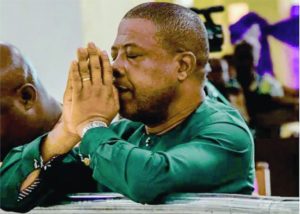
Though he has pledged to abide by the Supreme Court judgment, there are unconfirmed reports that Emeka Ihedioha has approached the Supreme Court to seek for a review of the ruling and possibly reinstate him as governor.
His points of arguments, according to reports are that:
• Uzodinma was not APC candidate and was not a candidate of any party in the 9th March Governorship election in Imo State based on the judgement of the same Supreme Court on 20th December 2019. Uche Nwosu was declared as the rightful candidate of APC and AA and was disqualified for double candidature. APC couldn’t have produced two candidates in one election.
• Supreme Court have no powers to allocate votes to any candidate. Supreme Court have no power to increase the number of people accredited by INEC.
• Somebody that was not a candidate cannot be winner of an election he was not a candidate.
• Nigerian Police have no powers to organize elections in Nigeria. Results tendered by a police officer cannot be admitted in any court as exhibit as he was not INEC officer.
• Based on the above facts that are still subsisting Ihedioha & PDP have applied for review and he might return to his office as the elected Governor of Imo State.
Will the Supreme Court judges entertain Ihedioha’s appeal? It is unlikely given past precedents.
Why Supreme Court may not reverse itself?
With Emeka Ihedioha and some Nigerians, including Christian leaders in Imo State under the umbrella of the Concerned Church Leaders Forum (CCLF), also calling for a review of the judgment, it is pertinent that we consider cases in the past that reviews of the judgements were sought and how it paned out.
Under the doctrine of stare decisis, the Supreme Court is bound by its previous decisions. As such there had been cases where the judgment of the Supreme Court stunned a section of the public but the court didn’t reverse its judgment when approached.
On November 2, 2009, Supreme Court dismissed Celestine Omehia’s application seeking for review of its judgment of October 25, 2007, which removed him and declared Rotimi Amaechi as the governor of River State. Amaechi won Rivers State PDP governorship primary in December 2006 but was substituted with Omehia. Early in 2007, Amaechi filed a suit challenging his substitution against the April 14, 2007 elections. The Court held that Amaechi was wrongly substituted with Omehia by PDP and that in the eyes of the law, Amaechi who didn’t contest the election was at all times the legal candidate of PDP at the elections, and proceeded to declare him as Governor of Rivers State.
The Supreme Court Justice Katsina-Alu had urged anybody aggrieved by the court’s decision to appeal to heaven where God Almighty reigns supreme and not in Nigeria where they held sway, adding that “only God can reverse the October 25, 2007 verdict.”
Similarly, on May 24, 2019, the Supreme Court nullified the elections of all the candidates of the APC in Zamfara State in the 2019 general elections. Delivering a unanimous judgment of the five-man panel led by then Acting CJN, Justice Tanko Muhammad, the apex court declared the first runners-up in the 2019 general elections in the state as the winners of all the posts earlier declared to have been won by the APC and its candidates.
The ruling generated a hale of reactions especially from the APC who felt hard-done by the judgment.
After reviewing the judgment, the Chairman, Presidential Advisory Committee Against Corruption, Prof. Itse Sagay, described it as a national tragedy. In a statement, the distinguished legal scholar and human rights activist had raised many posers for the Supreme Court while also urging the APC to approach the court for a review of the judgment.
The APC toed that line, but they met a brickwall as the Court threw away the appeal. Justice Rhodes-Vivour in his lead judgment held that the application was incompetent and time-barred, adding that the court had no jurisdiction in the matter. “We don’t seat on appeal over our own decision. We have no jurisdiction over this matter,” he said.
With the two instances cited above, it remains to be seen what becomes the fate of Ihedioha and his party who are still in shock over what transpired at the Supreme Court on January 14, 2020.

